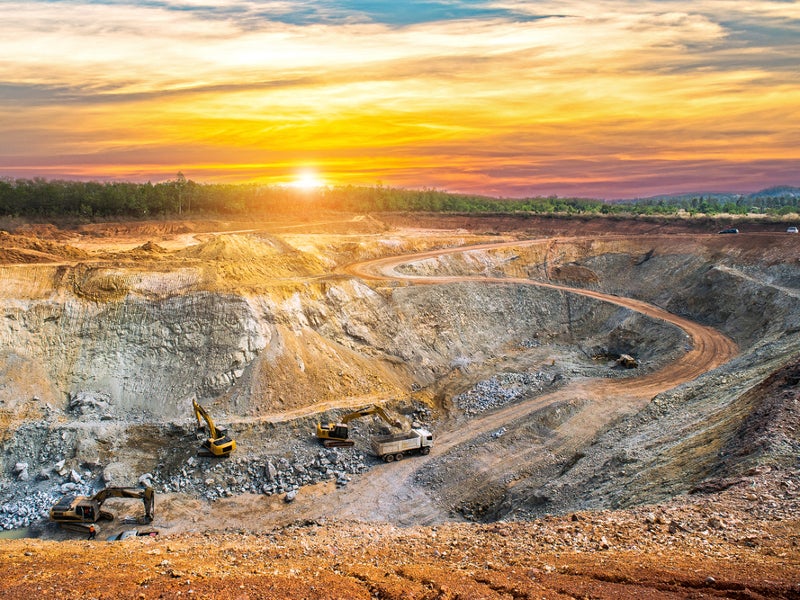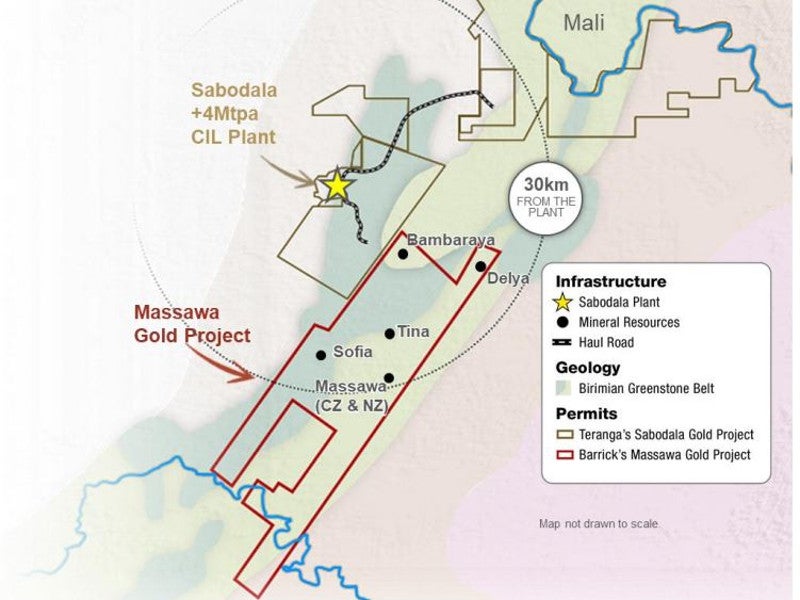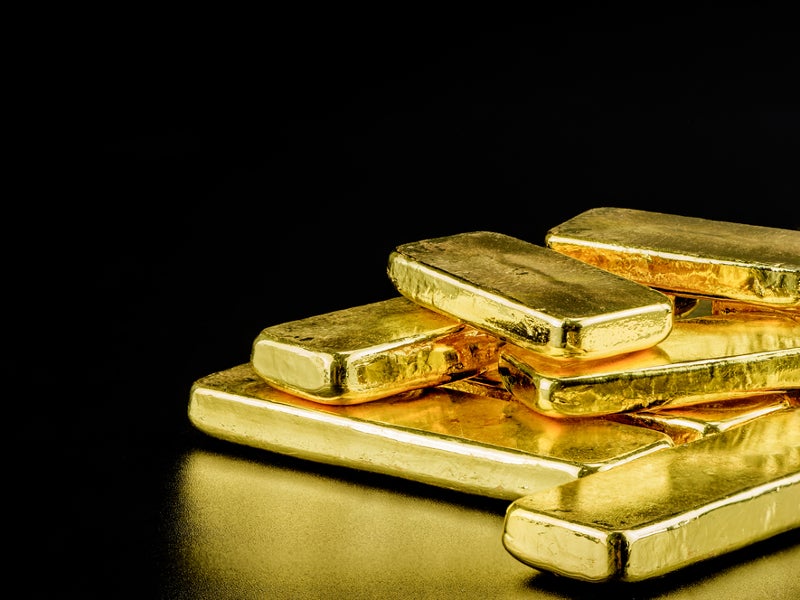Massawa is a high-grade open-pit gold project located in Senegal. It was previously owned by Barrick Gold (83.25%), Compagnie Senegalaise de Transports Transatlantiques Afrique de l’Ouest (CSSTAO) (6.75%), and the Government of Senegal (10%).
Terenga Gold entered a definitive agreement to purchase a 90% stake in the project from Barrick Gold and its joint venture partner CSSTAO, for up to £332m ($430m), in December 2019. The transaction was completed in March 2020.
Terenga Gold plans to integrate the Massawa project with its existing Sabodala gold mining operation.
Barrick Gold completed a feasibility study for the Massawa gold project in July 2019, which projected annual production of more than 200,000 ounces (oz) of gold over an estimated mine life of 10 years, with a capital investment of £318m ($412m).
Location, geology and mineralisation
The Massawa gold deposit is located approximately 700km south-east of Dakar, the capital city of Senegal. It is one of the highest-grade gold deposits in Africa.
The deposit was discovered by Randgold Resources, which was merged with Barrick Gold in January 2019.
The Massawa project comprises five main open-pit deposits namely, the Massawa Central Zone (CZ), Massawa North Zone (NZ), Sofia Main, Sofia North, and Delya, in addition to two satellite deposits named Tina and Bambaraya.
The Massawa deposits are situated on the north-east trending Main Transcurrent Shear Zone (MTZ), which extends for 150km between the Mako Belt and the Diale-Dalema Basin.
The mineralisation in the Massawa CZ is hosted mainly in volcaniclastics, felsic porphyries, and gabbroic intrusions, while the gold mineralisation in the Massawa NZ consists of disseminated arsenopyrite and pyrite associated with carbonate and sericite alteration.
The Sofia deposit is located along the Sofia-Sabodala Shear Zone, roughly 8km to the west of Massawa, while the Delya deposit comprises three parallel zones of mineralisation, over one-kilometre strike length.
Massawa gold mine reserves
The Massawa, Sofia, and Delya deposits are estimated to hold 18 million tonnes (Mt) of proven and probable reserves grading 4.17g/t of gold (Au).
The total contained gold reserves in the deposits are estimated to be 2.6 million ounces (Moz) out of which the Massawa CZ and NZ deposits account for more than 1.8MOZ.
Mining and ore processing at the Massawa gold project
Massawa will be a conventional open-pit mining operation involving drill-blast-load-haul techniques. Ore will be extracted in 10m benches using 2m-high flitches. The mining fleet for the Massawa gold project will comprise 90t trucks and excavators.
The run-of-the-mine (ROM) ore will be trucked to the existing Sabodala carbon-in-leach (CIL) plant located 20km north-west of the Massawa mine site.
Approximately 80% of the ore from the Massawa project will be processed at the CIL plant, while the remaining 20% refractory ores will be processed in a new bacterial oxidation (BIOX) circuit at the Sabodala complex in the latter phase of mine life.
Terenga Gold currently processes up to 4Mt of ore at the Sabodala CIL plant. It plans to mine and process the Massawa high-grade ore utilising the existing infrastructure at Sabodala on a priority.
Contractors involved
Digby Wells Environmental along with Tropica Environmental Consultants of Senegal was engaged for the environmental and social impact assessment (ESIA) of the Massawa gold project.
MineNet Consulting Mining Engineers provided geotechnical consultancy services, while Maptek provided geological modelling and mine design services for the project.





